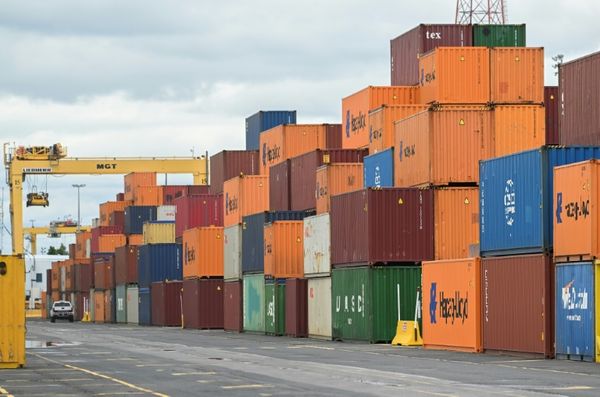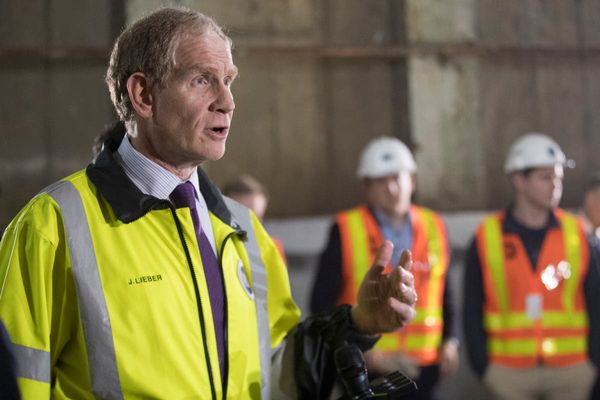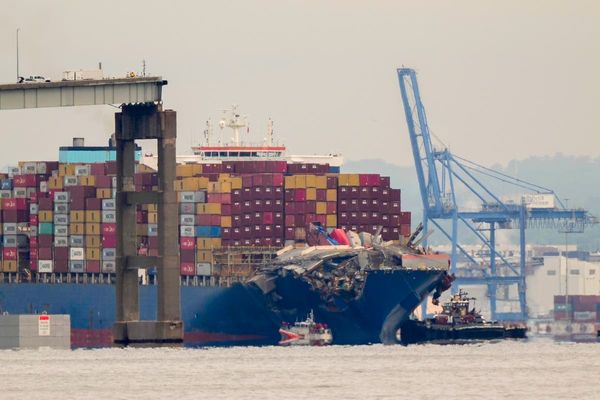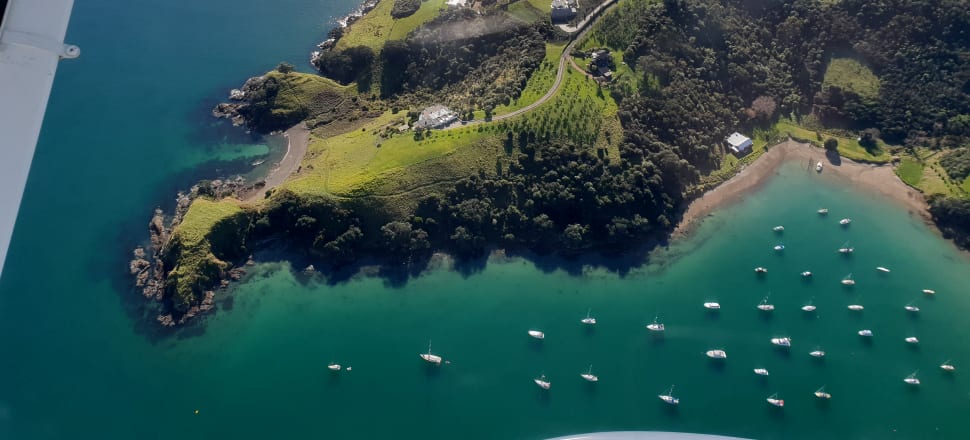
Conservation officials says it’s a complex process in need of robustness and accuracy, but supporters of a proposed marine reserve are ‘deeply frustrated’ at bureaucratic hold-ups
Despite over 90 percent support from a consultation process that closed nearly a year ago, an application to establish a marine reserve off the coast of Waiheke Island remains in limbo.
The Department of Conservation received the application for the 2,350 hectare Hākaimangō-Matiatia (Northwest Waiheke) Marine Reserve in April last year from Friends of the Hauraki Gulf, an environmental lobby group chaired by Auckland councillor Mike Lee.
But while DOC says the application is at the fifth step of a nine-step process, following the wrapping up of public consultation earlier this year.
READ MORE:
* DoC takes its time on sea change for Waiheke
* Moment of truth for Waiheke marine reserve
But Lee and the group say the department is “slow-walking” the process, despite a large majority of the submitting public being in favour of the new marine reserve.
Of 1303 submissions, 1183 were in full support and 26 were in partial support. In contrast, there were 89 objections and six partial objections.
The group called this “an extraordinary expression of public support from Waiheke Island and across New Zealand – an unprecedented level for a marine reserve application which normally attract more opposition”.
Despite what seems to be a near unequivocal thumbs-up for the idea, it’s been nearly nine months since any movement was made with the application.
DOC is preparing advice for Conservation Minister Poto Williams, which it says will enable her to decide whether to uphold any of the objections made during that consultation process. This advice is set to land on her desk some time next year.
But why does step five take a year?
DOC say preparation of that advice is exhaustive - including a full assessment of the application, public viewpoints and legislative and policy requirements.
DOC regulatory services director Steve Taylor said the work to provide that advice was complex, requiring consideration of a whole suite of laws: the Marine Reserves Act 1971, the Marine and Coastal Area (Takutai Moana) Act 2011, the Conservation Act 1987, the Hauraki Gulf Marine Park Act 2000, all relevant Treaty Settlement legislation and Deeds of Settlement, the Conservation General Policy and the Auckland Conservation Management Strategy.
Taylor said the department had determined further engagement with Māori stakeholders was necessary before pushing ahead.
“We plan to be able to engage with tangata whenua early next year. The department then expects to be able to finalise the advice being prepared for the Minister of Conservation,” he said. “The Department is committed to taking the time necessary to get this process and the advice right.”
He expected DOC to furnish the advice “later in 2023”.
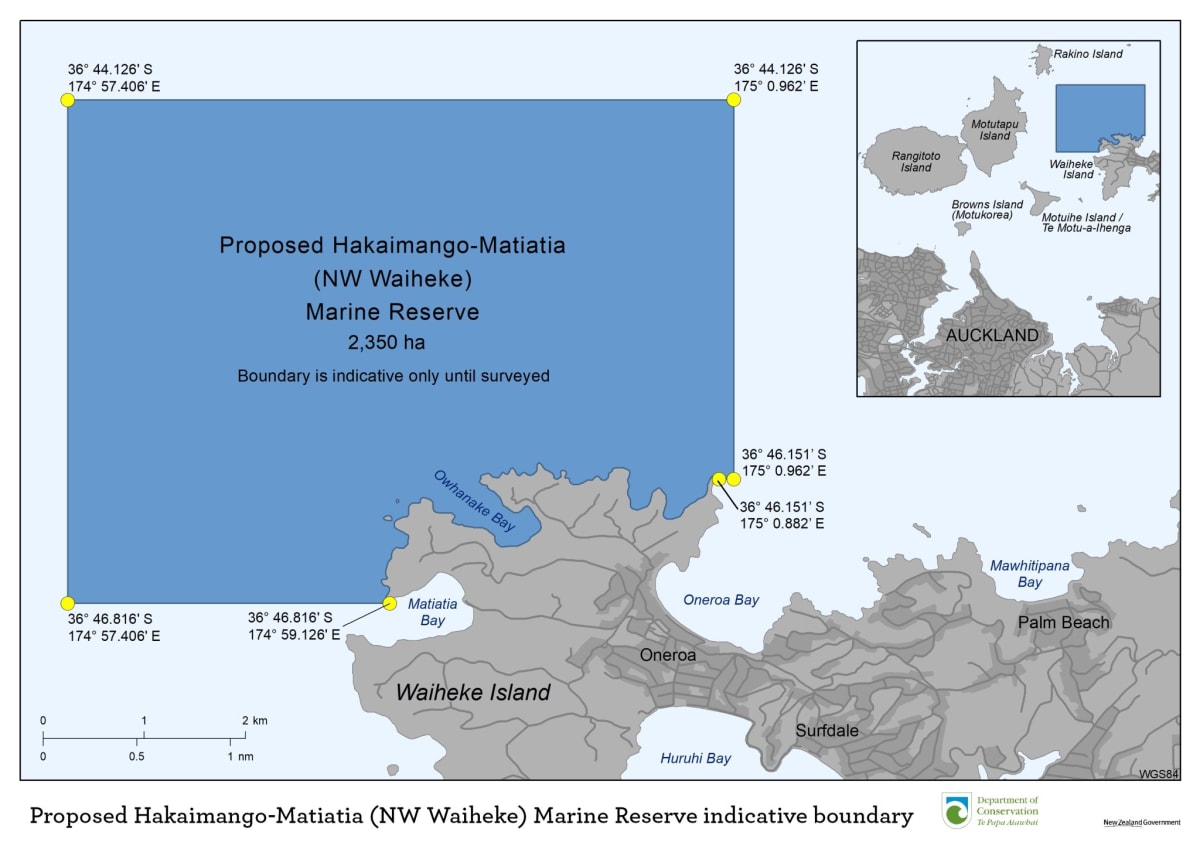
“Development of the advice is technical and it needs to be robust and accurate,” the department’s latest progress update says.
Taylor also rejected the idea that DOC was slow-walking the application, saying it had progressed as a similar rate to past applications.
“Applications in the past have taken anywhere between two to 10 plus years,” he said. “While we acknowledge the applicant’s and the community’s desire to see a decision on this application, it is in everyone’s best interest for the advice to be as robust and accurate as possible.”
According to Lee, supporters of the marine reserve remain deeply frustrated.
“There is absolutely no reason why DOC could not have completed its section 4 engagement with Māori within the formal Marine Reserves Act process… during the 10 month pre-notification period, during the two months of public notification period, or immediately after,” he said. “Instead DOC waited until after an inquiry from the Friends of Hauraki Gulf late this November to announce to stakeholders they were re-engaging with Māori.”
While DOC were promising to engage with tangata whenua in the new year, Lee said that was the same promise they made a year ago.
“We are getting the impression DOC is in effect blaming Māori for holding up this process when it is purely DOC's slow walking probably due to internal bureaucratic politics and sadly the department's evident lack of concern for its responsibility for nature conservation in the marine environment of the Hauraki Gulf," he said.
"The Hauraki Gulf ecosystem is being hammered. While the principles of the Treaty of Waitangi (all three articles) have not been formally defined, I very much doubt - however one interprets them - that they would justify any government department taking such a lax approach to a core responsibility."
In response to the wait, Friends of the Hauraki Gulf is petitioning to have the reserve included in DOC's Revitalising the Gulf Plan.
Just under 600 people have put their signature to the group’s petition, which would see the reserve enshrined in the changes that will come from Revitalising the Gulf - a government strategy intended to take marine conservation and fisheries management in hand.
Although the consultation process showed most Gulf residents are in favour of the reserve, the Marine Reserve Act 1971 lays out a range of other factors Williams will have to consider before making a call.
“The scientific benefits of marine reserves proved so numerous that it became clear that marine reserves are as important to science as clean apparatus is to chemistry, and for the same reason." - Dr Bill Ballantine
These include whether or not the reserve would interfere unduly with commercial fishing, real estate interests in the adjoining area, recreational use of the area or otherwise be contrary to the public interest.
At present, there are six marine reserves within the Hauraki Gulf, covering less than a percent of the Gulf’s total area. It’s a fact that comes up again and again in the public submissions.
Former Aucklander Paul Eaton said it was an “absolute no-brainer” to increase the “piddly one percent” of protected areas at present.
Ben Vroom from non-profit group Sea Stewardship said the marine reserve would be a good start, with a consensus that the country needed at least 30 percent of the waters around the New Zealand coast to be marine protected areas.
Prominent marine biologist Dr Bill Ballantine wrote before his death in 2015 that marine reserves were important, as they provided controls for the “the uncontrolled experiment that is happening due to fishing and other human activities”.
“The scientific benefits of marine reserves proved so numerous that it became clear that marine reserves are as important to science as clean apparatus is to chemistry, and for the same reason,” Ballantine wrote in 2014.
Ballantine had a hand in the Marine Reserves Act 1971, citing a litany of wider benefits along with the ecological importance of ‘no-take’ areas.
“Many direct benefits to science, education, conservation, and various forms of recreation are now well-established,” he wrote back in 1991. “Indirect benefits – to the fishing industry, to tourism, to resource planning, and to ecosystem health – are steadily becoming clearer, from empirical data and from modelling.”
Almost a year ago, Newsroom wrote about the beginning of the submissions period for this proposal as a ‘moment of truth’ for the Gulf and its future.
There was a sense of urgency in the opening of public consultation, partly as it would be the first new marine reserve in the area in two decades.
Since then, there’s a new minister in charge, with Kiri Allan passing the portfolio on to Poto Williams in June’s cabinet reshuffle.
With current polling suggesting there may be a new boss at the minister’s office in a year’s time, the proposal - and DOC's advice - seems set to run its way through yet more sets of political hands.

